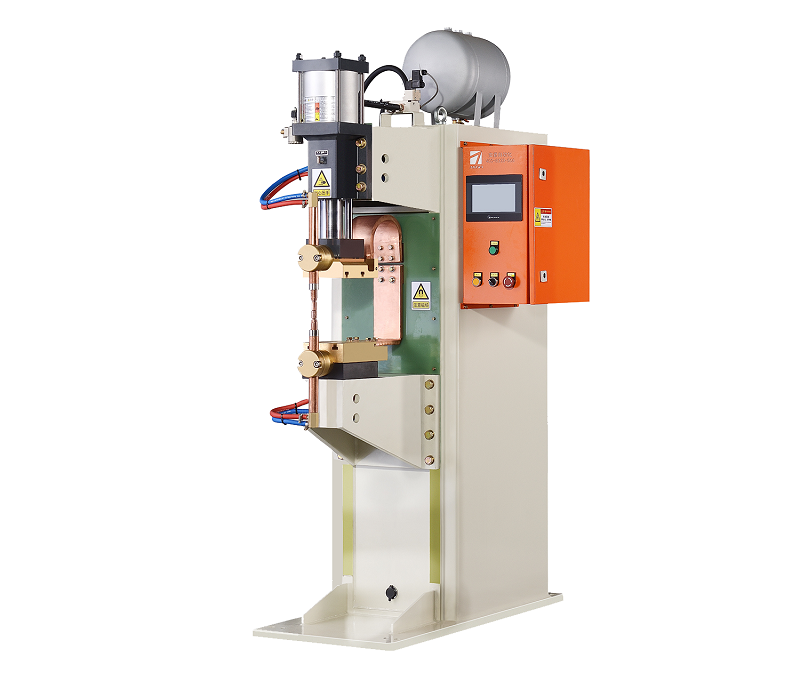Medium-frequency inverter spot welding machines are widely utilized in various industries for their efficient and precise welding capabilities. However, like any other equipment, they can encounter certain challenges that may impact their performance and productivity. In this article, we will explore some common issues faced during the use of medium-frequency inverter spot welding machines and discuss effective strategies to address them.

- Inconsistent Weld Quality: One of the primary challenges in spot welding is achieving consistent weld quality. Inconsistent welds can lead to weak joints or weld failures. To address this issue, it is crucial to ensure proper electrode alignment, optimize welding parameters, and conduct regular inspections to identify any variations or deviations. Adjusting the electrode force, welding current, and weld time can help achieve consistent weld quality across different workpieces and joint configurations.
- Electrode Wear and Damage: Continuous welding operations can result in electrode wear and damage, affecting the overall performance of the spot welding machine. Regular inspection and maintenance of electrodes are essential to detect signs of wear, such as electrode mushrooming or pitting. Replacing or repairing worn electrodes in a timely manner helps maintain consistent weld quality and prolongs the lifespan of the electrodes.
- Electrical Interference: Electrical interference from other equipment or power sources can disrupt the performance of medium-frequency inverter spot welding machines. To mitigate this issue, it is important to ensure proper grounding and shielding of the welding machine. Additionally, positioning the machine away from other electrical devices and using surge protectors can help minimize electrical interference and ensure stable welding operations.
- Material Compatibility: Different materials require specific welding techniques and parameters to achieve optimal weld quality. When working with a variety of materials, it is important to understand their characteristics and adjust the welding parameters accordingly. Conducting material compatibility tests and referring to welding guidelines and specifications can help determine the appropriate settings for different materials, ensuring satisfactory weld results.
- Operator Training and Skill Development: The proficiency of the operator plays a significant role in the performance of the spot welding machine. Providing comprehensive training and ongoing skill development programs for operators can enhance their understanding of the machine’s capabilities and proper welding techniques. Well-trained operators can identify and address issues promptly, leading to improved weld quality and productivity.
Addressing challenges encountered during the use of medium-frequency inverter spot welding machines is crucial for maintaining optimal performance and achieving high-quality welds. By addressing issues related to weld quality, electrode wear, electrical interference, material compatibility, and operator proficiency, manufacturers can overcome these challenges and ensure efficient and reliable spot welding operations. Regular maintenance, adherence to welding guidelines, and continuous training of operators are key factors in maximizing the capabilities of medium-frequency inverter spot welding machines and achieving consistent and robust welds.
Post time: Jun-24-2023







